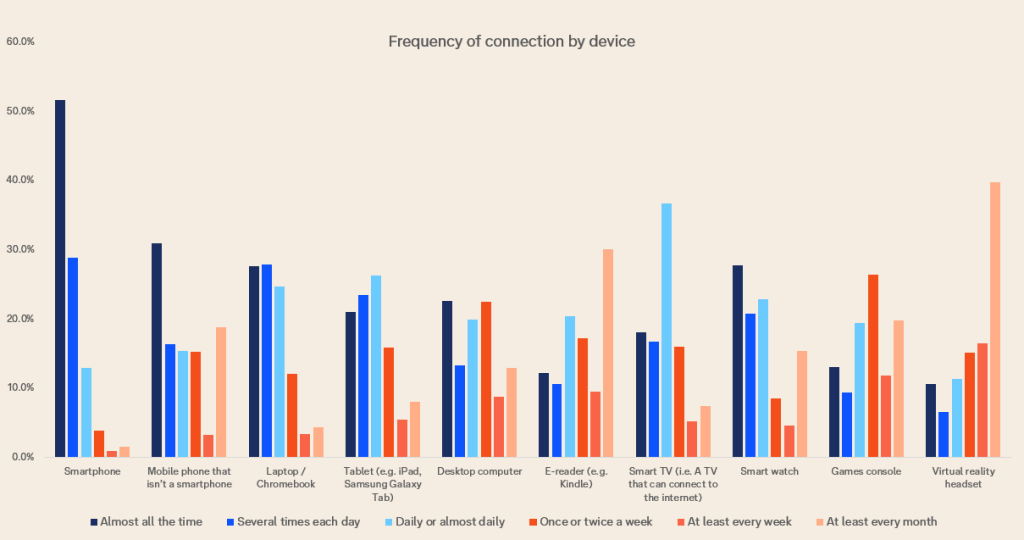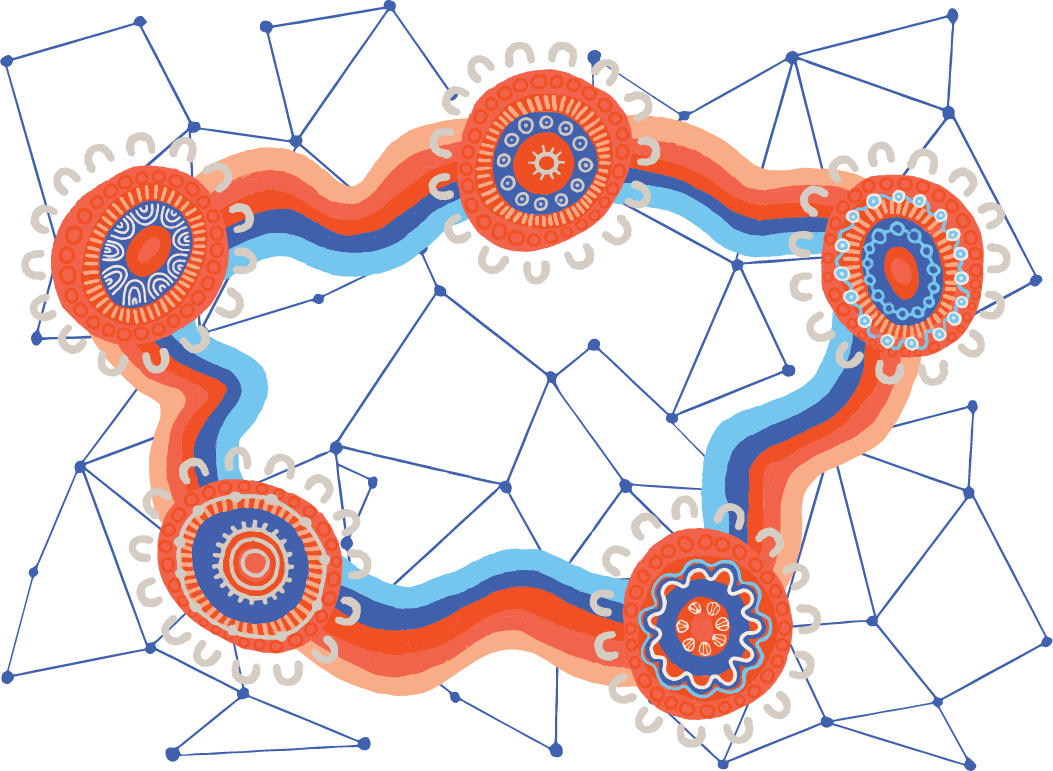- Jackie Coates - CEO, Telstra Foundation
This generation of children and young people are the first true digital natives. Children represent 1 in 3 internet users globally1, and by the age of 12 every child in Australia will be online2. The findings of the Australian Youth Digital Index show just how essential online connection has become in the day-to-day lives of young people (Table 1). Young people often understand the technology better than their parents and teachers; and are using it in more innovative and complex ways. Their perspectives are not only fascinating but also a crucial contribution. Young people know the online world better than anyone, and that innate sense for how it works is invaluable if we are designing new solutions to the challenges we face.
Table 1

The first generation to grow up digital
Young people today have grown up with smartphones, social media, and instant access to information. This natural fluency with technology means they often see possibilities and solutions that are not immediately apparent to older generations. The qualitative insights in the Australian Youth Digital Index show teenagers use social media platforms not just for socialising, but for organising community events, raising awareness about social issues, and even starting small businesses. Their innovative use of technology can provide valuable insights into emerging trends and future developments.
Shaping the Future of Technology
The ideas and opinions of young people can significantly shape the future of technology. They are not just passive consumers, but have agency to actively engage with and influence how technology evolves. By giving them a platform to share their thoughts, we can ensure that new technologies align with their needs and aspirations. This can lead to more user-friendly, inclusive, and innovative solutions.
Encouraging Responsible Digital Citizenship and Literacy
Young people must be at the centre of discussions about digital citizenship and literacy, including issues like online privacy, dis/mis information, cyberbullying, and the use of artificial intelligence. Their voices are crucial in shaping policies and educational programs that promote responsible and ethical use of technology, and to critically analyse digital information.
UNICEF Australia’s project ‘Protecting children in the online world’ works towards reshaping the digital environment to be safer and more beneficial for children and young people. Funded by the Telstra Foundation, this project aims to equip young people, parents and teachers with innovative tools and resources, to respond to online challenges.
Recognising the Nuanced Relationship with Technology
Young people’s relationship with technology is nuanced and multifaceted. While they are often seen as tech-savvy and constantly connected, they also have concerns about privacy, mental health, or affordability. Young people are acutely aware of the impact of technology on their well-being. They can articulate the benefits and drawbacks of constant connectivity, social media, and digital entertainment.
By acknowledging and understanding these concerns, we can build supports that allow young people to embrace technology in a way that is accessible, affordable and safe for them.
We want to see young people empowered to make the most of the opportunities in an expanding digital world. Let’s continue amplifying their voices so they can help shape more inclusive, innovative, and secure digital world for all.
Interested to dig a bit deeper? Use our Australian Youth Digital Index dashboard to explore what young people think about growing up online in 2024.


